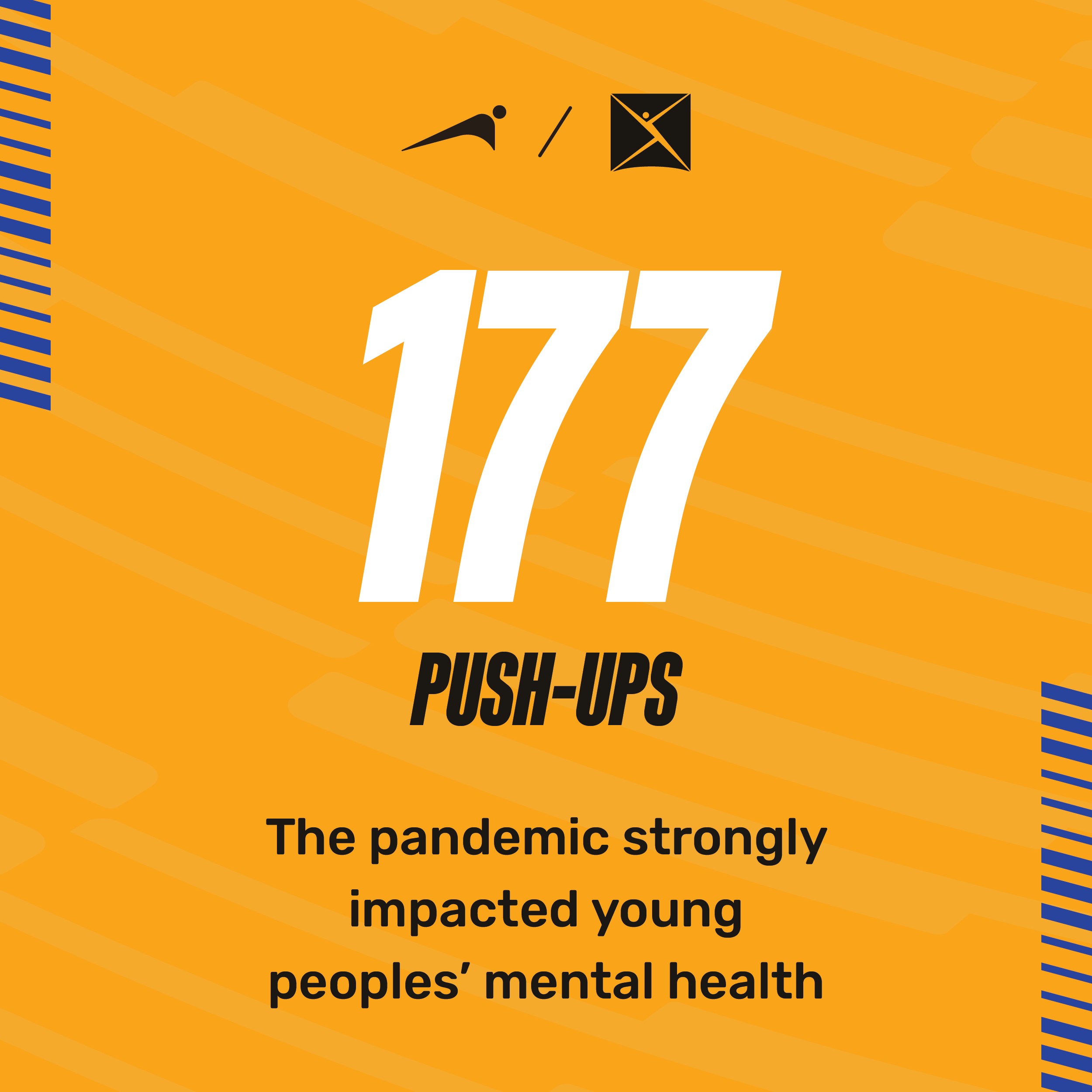I've completed the 177 for today and started to catch-up where I've fallen behind for previous days.
I received a donation yesterday so that's excellent. Thank you!
Support or learn more at The Push-Up Challenge.
Post pandemic youth mental health
Day 17: 177 push-ups
Today’s target is 177 push-ups, for the 17.7% of Canadians who reported average or poor mental health at the beginning of the Covid pandemic.
Since then, mental health has declined further and demand for mental health care has surged. While the pandemic affected us all, recent research has shown that it has adversely affected the mental health of adolescents in particular.
Overall, 40% of teenagers reached out for support for their mental health in 2020. Adolescents with anxiety, as well as those of gender or sexual minority status, were more likely than others to have discussed their mental health concerns with someone. This was most likely their family doctor or an adult at school. Teens with depression and/or anxiety, and those of gender or sexual minority, were the most likely to say that their mental health needs were unmet.
Since April 2020, data shows that major depressive disorder, generalised anxiety disorder, alcohol and cannabis use increased among adolescents.
Research shows that in the first half of 2021, 39.7% of teenagers showed symptoms of depression, 43.7% showed symptoms of generalized anxiety, 26.8% reported using alcohol in the past month, and 16.8% reported using cannabis in the past month.
For service providers, future interventions should aim to expand outreach to these underserved groups of adolescents, and focus on primary care, school-based interventions and in-person services.
For teens and their loved ones, these are some warning signs for common mental health problems:
- Anxiety that seems out of control or extreme given the situation.
- Low mood that lasts for a long time or frequent tearfulness.
- Unusually high mood, racing thoughts or ideas.
- Hopelessness, worthlessness, or talk of death or wanting to escape.
- Excessive irritability or anger.
- Changes in eating, weight, or sleeping patterns.
- Self-injury (such as cutting).
- Sensations (such as hearing voices) that aren’t real.
- Strange beliefs that can’t possibly be true.
- Difficulties remembering information or making decisions.
These signs do not necessarily confirm a mental illness, but if they are present, it’s time to speak up and make an appointment with a suitably qualified health professional to assess what’s going on.
If anyone talks about suicide or ending their life, take it seriously. Please call 9-8-8 (toll free, 24/7), Kids Help Phone at 1-800-668-6868, or the First Nations and Inuit Hope for Wellness Help Line at 1-855-242-3310.
Likes and comments for posts are collected from the web. Learn more about how this works.
